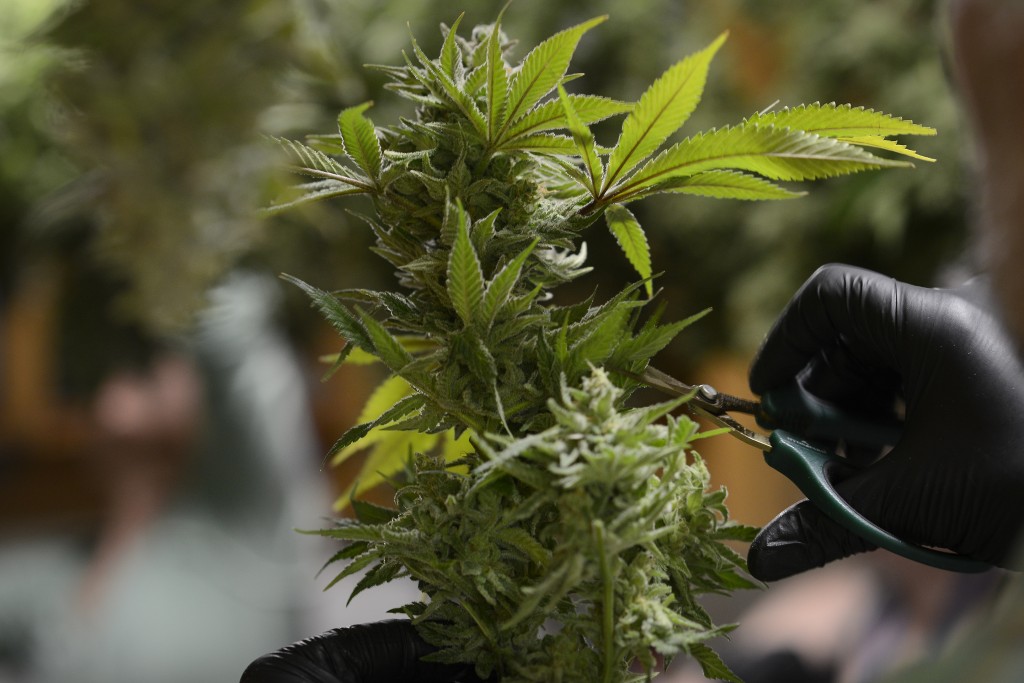Oregon eyes 20% tax on marijuana retail sales
 Oregon lawmakers are mulling over slapping a 20 percent sales tax on recreational marijuana. Whether that’s a huge mistake for a state famous for having no sales taxes, I’ll leave to you and the market to decide.
Oregon lawmakers are mulling over slapping a 20 percent sales tax on recreational marijuana. Whether that’s a huge mistake for a state famous for having no sales taxes, I’ll leave to you and the market to decide.
We won’t know for a couple years. Possession on the south side of the Columbia River becomes legal on July 1, but the first stores aren’t expected to open until October 2016.
Whatever happens in the meantime, there’s really no question that Oregon’s marijuana industry will eventually take a bite out of Southwest Washington’s pot sales. The real question is just how big a bite are we talking about?
We’ll have to wait and see. Also at play here is a push to change the marijuana tax structure in Washington.
Washington’s marijuana taxes are actually much higher than they seem. At a rate of 25 percent levied three times over from the grower to the transaction between the pot shop and the consumer, the effective tax rate on marijuana in Washington is 44 percent, according to The Tax Foundation.
With all that in mind, I’ve posted an Associated Press story below about what’s going on in Oregon’s system, along with a little local angle on what to expect in Washington. Check it out and stay tuned for more big marijuana news this month.
– Justin Runquist
GRANTS PASS, Ore. — The Oregon Legislature is considering imposing up to a 20 percent sales tax on retail sales of marijuana once it becomes available to consumers.
Proposed amendments to House Bill 2041, allowing localities to prohibit marijuana facilities within 1,000 feet of schools, would impose a 17 percent state tax on retail sales of marijuana products, from buds to candies.
The latest amendments to the main bill, HB 3400, laying out regulations for legal marijuana in Oregon under the ballot measure enacted by voters last fall, would allow cities and counties to charge a 3 percent tax, if local voters approve.
Scott Winkels, lobbyist for the League of Oregon Cities, said they were happy the Legislature gave localities authority to charge a tax — Measure 91 gave only the state authority to tax, with some of the revenues shared with localities — but the league would like to see the amount increased once retail marijuana is up and running and there is a better idea of how much revenue it is generating.
“But having it on the books, we think, is a huge win,” he said.
Senate President Pro Tempore Ginny Burdick, D-Portland, co-chair of the joint committee implementing Measure 91, said the tax rates were chosen to keep Oregon cannabis prices lower than competitors in Washington state and Colorado, to keep prices low enough that consumers won’t go to the black market, and to generate about the same amount of revenue as the original taxes charged growers in Measure 91.
By comparison, the tax on cigarettes is 65 percent of wholesale, and liquor is about 100 percent of wholesale.
Since Measure 91 passed in November, making marijuana legal for recreational purposes, the Legislature has been working on changing some key provisions. The sales tax was settled on as a way to allow medical marijuana growers to grow for retail sales without having to pay the tax at the production level included in Measured 91.
In Washington
In Washington, the industry is taxed 25 percent on the product three times over — from grower to processor, processor to retailer, and finally from the store to the consumer. Also factoring into the equation are local sales taxes and business and occupation taxes charged on producers.
Altogether, the taxes heavily compound the price of marijuana. After nearly a year in operation under the system, many smaller producers and store owners are struggling to make money.
The tax rates are almost certain to change this month, though. In Olympia, legislators are stuck in a second special session, thus far failing to reach an agreement on a new two-year operating budget. Changing marijuana taxes is a big part of the debate.
On the table is House Bill 2136, a proposal that would erase the 25 percent tax on producers and processors and raise the rate for retailers. In the end, the bill would help lower the price of marijuana and the cost of doing business.
The final sticking point on the legislation appears to be the tax rate. The House bill proposes raising the tax to 30 percent, while members of the Senate are pushing for 37 percent.
